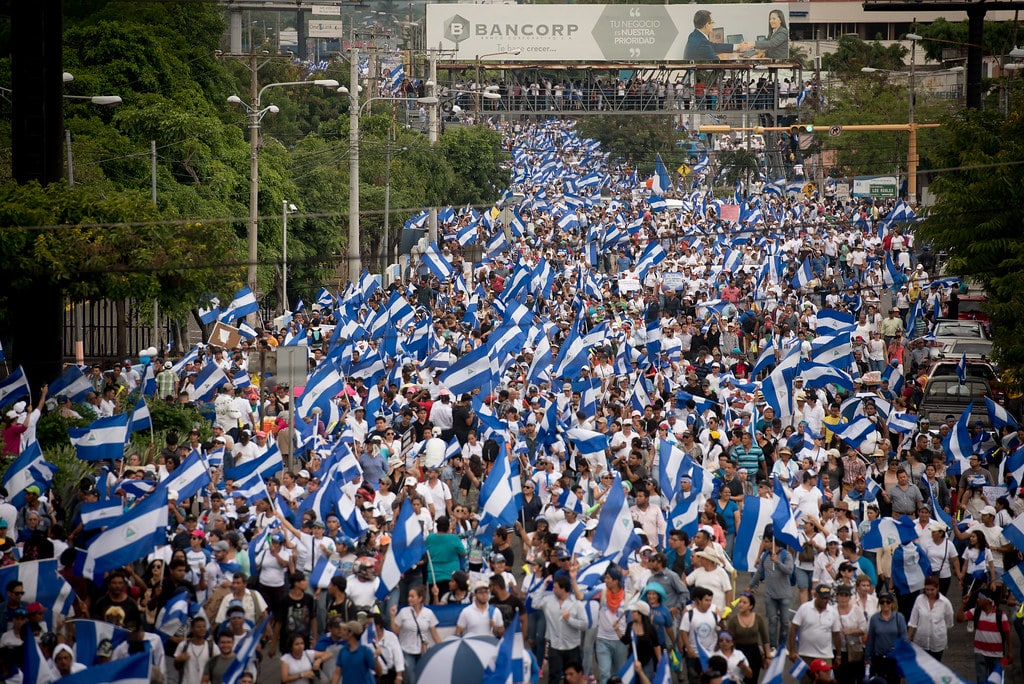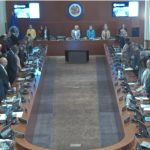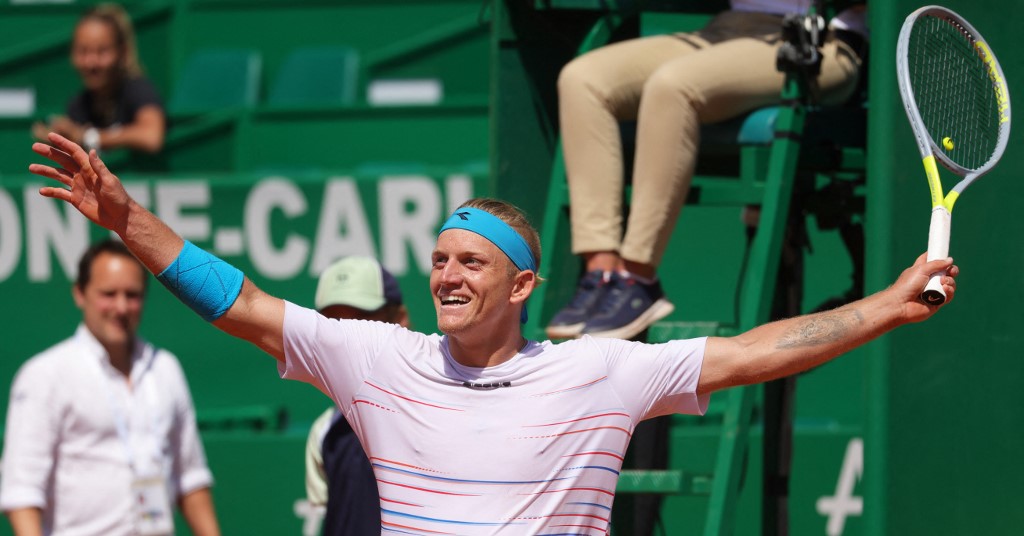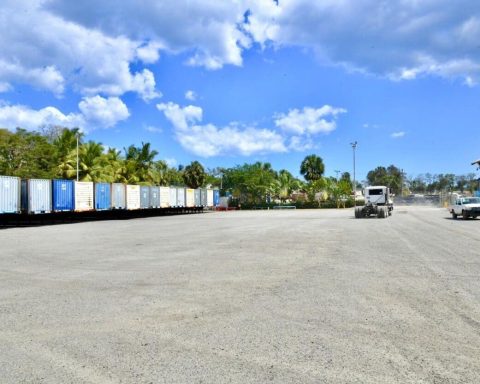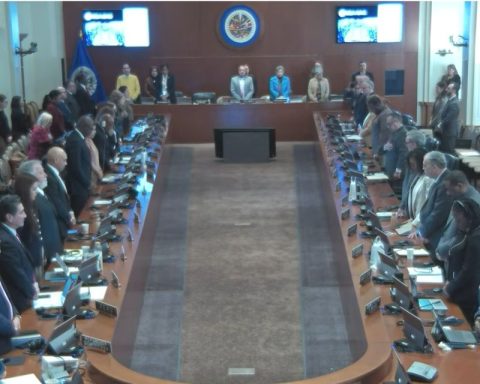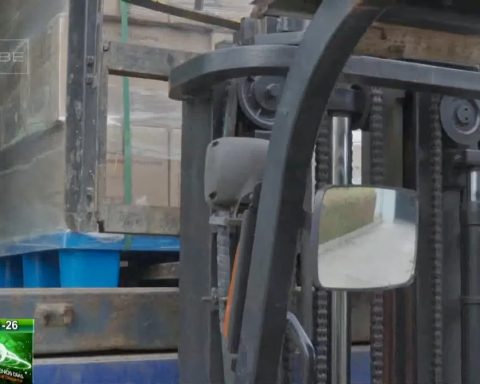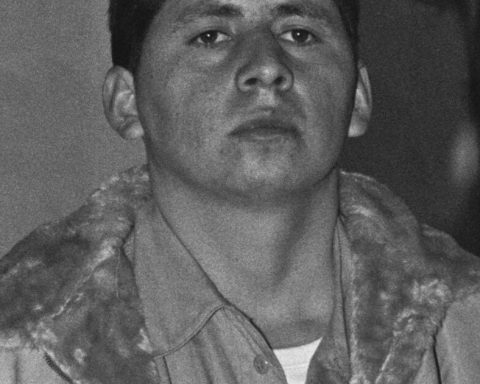The political crisis that Nicaragua has been going through for four years continues to worsen without anyone seeing a prompt solution. After the massive protests —which broke out on April 18, 2018— the regime of Daniel Ortega and Rosario Murillo seems to have tipped the balance in its favor and the main leaders of the protests are in jail or exile and the victims continue to demand justice without impunity. However, analysts and opponents agree that Ortega only governs with the power of repression and political persecution, while the country maintains its demand for change, to found a new republic.
Nicaragua has gone through a painful path: the government repression and massacre that caused the death of at least 355 people between April 2018 and June 2019, according to data from the Inter-American Commission on Human Rights (IACHR); the incarceration of a thousand political prisoners, of whom more than 180 are still in Ortega jails; the exile of some 100,000 Nicaraguans and the establishment of a de facto police state.
This is what has happened with some of the protagonists of the April 2018 Rebellion.
The youth of #SOSIndioMaíz
Exile has been the alternative for many of the young people who participated in the seedling #SOSIndioMaíz, at the Central American University (UCA). Since that April 11, 2018, when they protested for the first time to demand responses to the State regarding the fire in the Indio Maíz Biological Reserve, have been victims of repression and forced to leave the country. This group included student leaders such as: Lesther German, who confronted Daniel Ortega during the first National Dialogue and is currently a political prisoner of the regime; Madelaine Caracas, who read to the president the list of the first 60 killed during the protests and is currently in exile; Y Joseph Albert Montoyawho last January published his book of short stories about the repression in Nicaragua in Costa Rica.
Retirees beaten by the Sandinista Youth
To the retirees who were beaten by the Sandinista Youth on April 18, 2018 for protesting against a Social Security reform package, first in León and then in Managua, they had to accept —eleven months later— a similar reform imposed in the midst of the crisis. In February 2019, the Nicaraguan Executive argued that it needed to recover the economy after the protests, which it classified as a “failed coup attempt”, and sent the reforms to the National Assembly where they were approved without complications. The changes included an increase in the employer and employee contributions, modified the formula for calculating pensions and eliminated the annual adjustment of 5% of their value.
barricaded students

Hundreds of students who barricaded themselves in the National University of Engineering (UNI), the Polytechnic University (Upoli) and the National Autonomous University of Nicaragua (UNAN-Managua) became the target to be followed by supporters of Ortega. In 2018 they were expelled from their careers, in 2019 they were imprisoned, irregularly prosecuted and granted amnesty; and in the following years forced into exile. Four years later, student leaders: John CernaKevin Solis, Max Sherry and Lesther Alemán, are in the regime’s prisons. Other student leaders such as: Yaritza Mairena, Edwin Carcache or Ángel Rocha, were forced into exile, from where they continue their political activism.
The Mothers of April and their demand for justice

Four years after the murder of their children, during the brutal repression of the Ortega-Murillo regime against the 2018 protests, the April Mothers They continue to demand justice, truth, reparation and non-repetition. His demand has not been echoed by any national authority and, despite multiple calls from the international community, the regime continues to rage against its victims. Susana López, mother of Gerald Vásquez; Lizeth Dávila, mother of Alvarito Conrado; o Josefa Meza, mother of Jonathan Meza, are some of the Mothers of April who are in exile. Those who remain in Nicaragua are victims of siege by the Police and sympathizers of the regime.
The businessmen who broke with the Government

The businessmen —who until 2018 maintained a close relationship with the Ortega government— have also paid for having revolted. First, hundreds of squatters linked to the Sandinista National Liberation Front (FSLN) seized 9,800 acres of land, according to the Union of Agricultural Producers of Nicaragua (Upanic). Later, the General Directorate of Revenue (DGI), the General Directorate of Customs (DGA) and the mayors’ offices carried out fiscal terrorism against formal companies. Finally, the union leaders: José Adán Aguerri, Juan Sebastián Chamorro, Michael Healy and Álvaro Vargas, who represented private companies in the Civic Alliance, were imprisoned for the alleged crimes of conspiracy and treason.
Opposition leaders and activists

Other faces of the 2018 protests were activists and opposition leaders such as: Félix Maradiaga, Violeta Granera, José Pallais, Tamara Dávila, Ana Margarita Vijil, Suyen Barahona, José Antonio Peraza, Alex Hernández and Yader Parajón; who were imprisoned during a wave of arrests in the 2021 electoral context. This situation also forced activists such as: Ivania Álvarez, Jesús Tefel or Eliseo Núñez, who continue their political activity outside the country, to go into exile. The activists who remain in Nicaragua have withdrawn from the public eye in an attempt to evade the de facto police state.
Doctors and health workers

The firing of health workers for providing medical care to those injured during the 2018 protests caused much outrage. Hundreds of men and women wearing white coats went out to protest demanding the reinstatement of their colleagues and later formed the Nicaraguan Medical Unit (UMN), from where they exerted some political influence on the opposition. However, four years later, the Ortega regime has still not returned their jobs and those who made up the UMN are victims of siege.
Journalists

Several of the independent journalists, editors or directors of media outlets, who stood out with their coverage of the crackdown in 2018, are also in exile, in jail or with their newsrooms confiscated. The sports writer Miguel Mendoza; the owner of 100% Noticias, Miguel Mora; and the manager of the newspaper La Prensa, Juan Lorenzo Holmann, are part of the current 147 political prisoners of the regime. In 2019, the journalist Lucía Pineda, who is now in exile, was also imprisoned. Also, the director of CONFIDENCIAL, Carlos Fernando Chamorro, had to go into exile for the second time to avoid being imprisoned and prosecuted in a political trial. In addition, the newsrooms of CONFIDENCIAL, 100% Noticias and La Prensa remain confiscated.
The self-summoned

Among the massive marches, several self-convened people became symbols of the protest. Marathon runner Alex Vanegas, who was arrested five times for running with a sign in his hand, went into exile after being released from jail in 2019; Socorro Matuz, known as “Doña Coquito, who he distributed the water from his sale outside the Our Lady of Fatima Interdiocesan Seminary where the first National Dialogue was held, now his health is very delicate and with various chronic illnesses; Flor Ramírez, the lady in the huipil, remains under police siege; Colochos, who transported the wounded on his motorcycle, keeps a low profile so as not to be identified by regime sympathizers in a Managua neighborhood.
The Peasant Movement

The fight of the anti-canal Peasant Movement against the Ortega regime began five years before the April Rebellion, but its members joined the massive protests demanding justice for those murdered in 2018. This situation placed their leaders in the crosshairs of the operators of the regime, who persecuted them until they captured the current political prisoners: Medardo Mairena, Pedro Mena and Freddy Navas. Other leaders of the Movement such as: Francisca Ramírez and Nemesio Mejía were forced into exile, abandoning their lands that since 2013 they had been defending from expropriation for the construction of an interoceanic canal.
priests

Members of the Episcopal Conference of Nicaragua (CEN) also played a leading role in 2018. Since then they have been attacked by Daniel Ortega and his wife Rosario Murillo. Cardinal Leopoldo Brenes; the auxiliary bishop of Managua, Silvio Báez; the then apostolic nuncio, Waldemar Sommertag; and a group of priests from the Archdiocese of Managua, were beaten by mobs and paramilitaries of the regime while trying to mediate the attacks perpetrated in Carazo. On March 6, the apostolic nuncio left his diplomatic mission in Nicaragua under strong political pressure from Ortega, and before that, in 2019, Monsignor Báez left the country at the request of Pope Francis to avoid an attack against him. Priests Edwin Román and Augusto Gutiérrez are also in exile.
The representatives of the National Dialogue

Few of the civil society representatives who sat at the National Dialogue table with Daniel Ortega and his government cabinet remain in the country or are free. Businessmen and student leaders are currently political prisoners of the regime. The academic Ernesto Medina is in exile, the former education minister Carlos Tünnermann suffers from several chronic illnesses that keep him away from the public arena, and Sandra Ramos had the legal status of the NGO he directed canceled. In addition, among the bishops who made up the Mediation Commission were Monsignor Bosco Vivas, who died in 2020, and Monsignor Silvio Báez, exiled since 2019.
human rights defenders

Since the first protest on Camino de Oriente, human rights defenders have been denouncing the brutal repression against protesters and, in the end, they too have ended up being victims. First, the regime expelled from the country the mission of the Office of the United Nations High Commissioner for Human Rights (OACNUDH), then it canceled and confiscated the Nicaraguan Center for Human Rights (Cenidh), then it expelled the Special Follow-up Mechanism for Nicaragua. (Meseni) and the Interdisciplinary Group of Independent Experts (GIEI), which installed the Inter-American Commission on Human Rights (IACHR). Currently, the human rights defender, María Oviedo, is a political prisoner of the regime and the defenders: Gonzalo Carrión, Wendy Flores, Juan Carlos Arce and Braulio Abarca, remain in exile.
Due to the political persecution that exists in Nicaragua, it has not been possible to cite all the leaders of the April 2018 Rebellion in this report. The de facto police state imposed by Daniel Ortega has escalated to the point of holding spurious trials in El Salvador prison. Chipote, where dozens of opponents remain in subhuman conditions.
